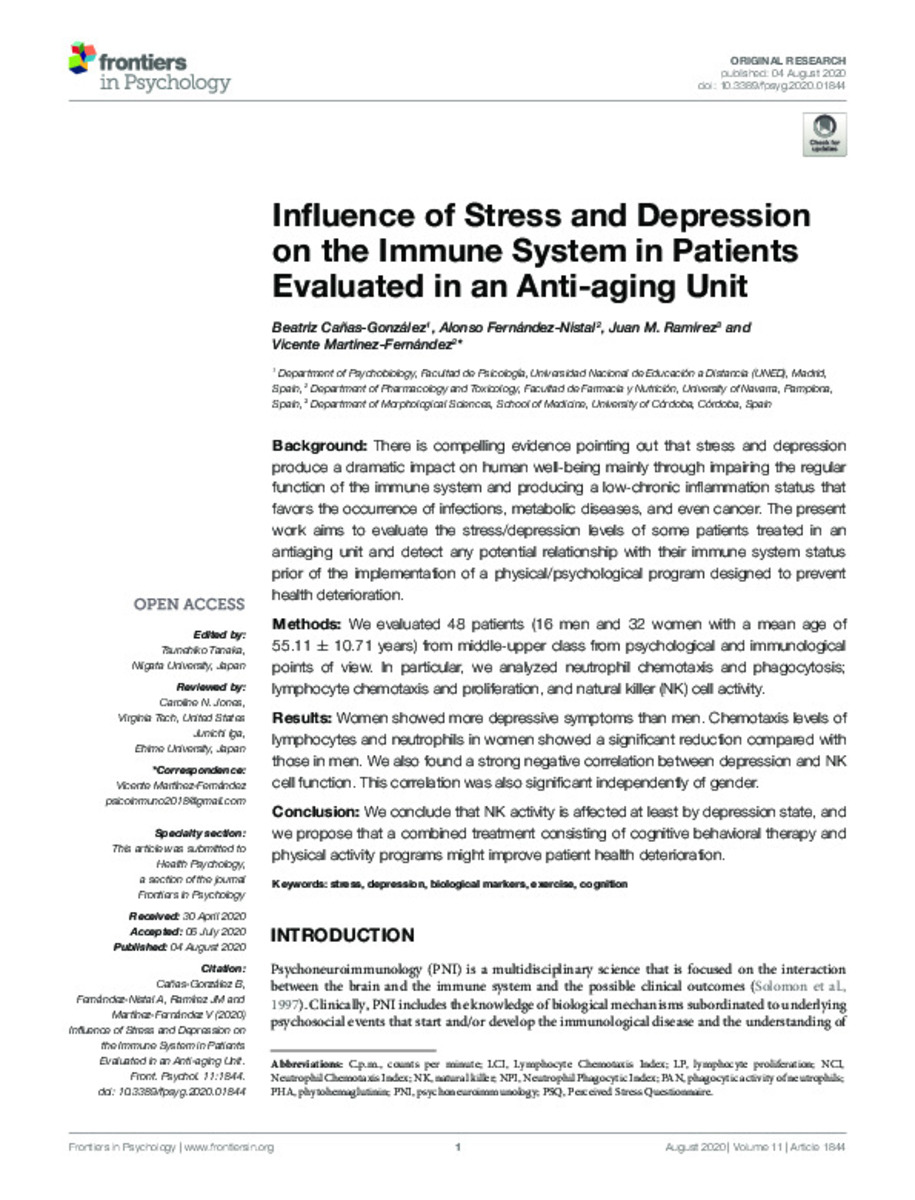Influence of stress and depression on the immune system in patients evaluated in an anti-aging unit
Keywords:
Stress
Depression
Biological markers
Exercise
Cognition
Note:
This is an open-access article distributed under the terms of the Creative
Commons Attribution License (CC BY). The use, distribution or reproduction in
other forums is permitted, provided the original author(s) and the copyright owner(s)
are credited and that the original publication in this journal is cited, in accordance
with accepted academic practice. No use, distribution or reproduction is permitted
which does not comply with these terms.
Citation:
Cañas-González, B. (Beatriz); Fernandez-Nistal, A. (Alonso); Ramírez, J.M. (Juan M.); et al. "Influence of stress and depression on the immune system in patients evaluated in an anti-aging unit". Frontiers in Psychology. 11, 2020, 1844
Statistics and impact
0 citas en

0 citas en

Items in Dadun are protected by copyright, with all rights reserved, unless otherwise indicated.







